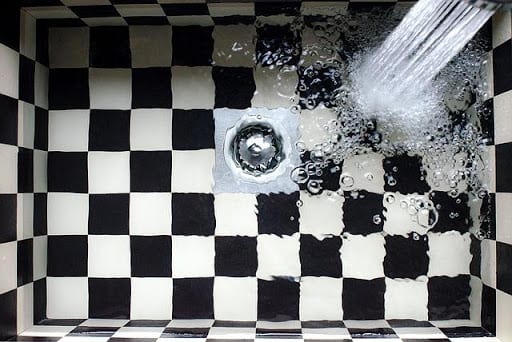
Types of Dirty Water that Can Invade Your Home and the Purpose of a Water Filter
Thanks to the numerous advancements in plumbing technology, the water that we use at home is now cleaner and safer. Sewage and used water can now be safely disposed of into septic tanks and sewers where they can be reduced to other valuable utilities such as gas and compost without causing harm to the environment.
Unfortunately, even the world’s most stable plumbing systems are not indestructible or 100 per cent efficient. They are in constant battle against natural forces, which we all know is a battle they cannot win. Pipe deterioration, breakage, or misalignment can be delayed but not avoided. Only through excellent plumbing work from experts like FIXME Plumbing can a plumbing system last a lifetime.
A lot of bad things can happen when your plumbing system breaks due to manmade or natural causes. Possibly two of the worst implications are back flow or back siphonage in which used, contaminated or polluted water, and sometimes sewage, flows back into the water distribution system. Even the slightest amount of contaminants from these types of water getting mixed with tap water can be harmful.
Sometimes, the contamination of your home’s water supply may come from a more distant source, such as the main water line, which can break and let contaminants leak in. Of course, this can be dealt with by increasing the chlorine content of the water but only to a safe extent. Chlorine, after all, is considered toxic so putting too much of it in the water can be just as harmful to health.
Different Types of Dirty Water that Can Come Out of Your Faucet
Most households have experienced dirty water coming out of their tap at least once. Usually, this water is dark-coloured with soil sediments and is a little bit smelly. Although it’s a natural response to not touch the water and keep it flowing until the contaminants clear up, it also helps to save a sample so you can figure out what type of water it is and eventually identify its source. Here are some of the types of dirty water that you may encounter and where their possible origin is.
-
Hard Water
– This type of water is characterised by its high mineral content. The minerals it contains are not necessarily toxic but they still cannot be used for drinking or bathing. One way to test if the water coming out of your faucet is hard is by dissolving soap in it. If the soap doesn’t create suds, the water is most likely filled with minerals. A good example of hard water is saltwater and leftover laundry water.
-
Grey Water
– The term “grey” is used to describe all kinds of waste water from baths, sinks and washing machines. These are relatively not toxic but still harmful to health when consumed or used for washing the skin because they provide a comfortable habitat for bacteria, algae, and other kinds of microorganism.
-
Black Water
– Of all the types of water that can be released into your home through the water supply system, black water is the dirtiest and most detrimental. It normally contains human excrement and urine as well as foreign substances and objects that may have been stuck in the sewer lines. When such water is backing up through the sink or water closet, it’s time to call in an expert plumber.
Purpose of Water Filter
Just as innovation made the supply of clean water to homes possible, it is also possible to prevent dirty water from getting mixed with the clean water that flows out of the bib. Apart from ensuring that your plumbing system is installed properly, you can also consider installing filters on all of your plumbing fixtures to further purify the tap water.
What is the purpose of water filter? The best way to understand the true importance of having your own water filtration system at home is to identify the types of contaminants that can get mixed with your water supply despite their safe conveyance from a community source, which has their own filtration system.
If you look under the microscope, the clean water that flows through your tap isn’t really 100 per cent pure. There are countless different types of elements and compounds that can be present in it, such as lead, heavy metals, chemicals from pesticides, and all sorts of bacteria. These substances and microorganisms are too small to be filtered out.
By installing your own water filtration system, you are double-checking the quality of your water. Meaning, you are further reducing the already minute amount of contaminants present in your water supply so that it becomes safer to drink.
In case of a breach in the plumbing system, you can prevent dirty water from passing through. With your water cleaner than it already is, you don’t have to keep buying bottled water anymore, so you can write that off your budget. You can also reduce the risk of gastrointestinal disease since its primary causes – cryptosporidium, e-coli and giardia – can be effectively removed.
Still asking yourself the question, “why do you need a water filter?” To make an educated decision about having such a device in your house, consult with a professional plumber like FIXME Plumbing in Sippy Downs. In fact, you can simply hire them to do the choosing and installation. They can even fix any complex and common plumbing issues that they might find during the installation.

